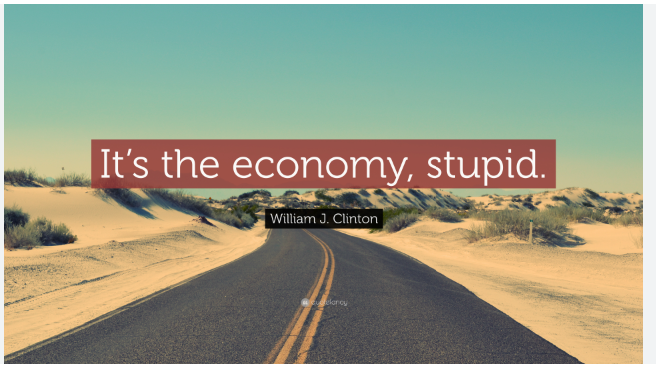Ozan Gundogdu: Can you measure voter support by economic data?
 economy-stupid
economy-stupid
There are many studies on how economic trends influence elections. A common proposition is: Pessimism regarding the economic course weakens support for the incumbent. This is the case in Turkey, as it is almost everywhere in the world. However, the most important feature of Turkey that softens this correlation is entrenched political polarization. The fanaticism that forms the base of power is difficult to loosen no matter what happens in the economy. As political polarization dwindles in importance, the economy is quite decisive in Turkish politics, which is experiencing a balance of power between Republic and Nation + Labor and Freedom Alliances, stuck at 50-50 percent.
Well, is there an easily accessible economic indicator which gages support for political rivals? Yes, and that's a survey published every month: Consumer Confidence Index announced by TUIK…(Turkstat)
The index is created from a survey conducted with a small sample of the public. Various questions are asked to 4,884 households. Like what? For example, how has your personal financial situation changed in the last 12 months? What are your expectations in the next 12 months? What are your expectations and observations regarding the general economy? Will inflation continue? Spending and saving trends are also asked. For example, what are your expectations of buying a house, buying a car, buying furniture, or renovating? Such questions are digitized and an index value from 0 to 200 is calculated. Values below 100 indicate general pessimism, and vice versa. This study has been carried out in our country since 2005. For Turkey, it can be said that dividing line between pessimism and optimism is 90. If the Consumer Confidence Index is above 90, the economy is fine, and if it is below, the most important agenda of the public is the economy.
[embed]https://www.youtube.com/watch?v=c6ULaXA7P24&list=RDCMUCKpFJB4GFiNkhmpVZQ_d9Rg&start_radio=1[/embed]
The data reveals that voting behavior changes at time of the ballot if Consumer Confidence Index is above 90 or below.
For example, let's take a look at the 2011 June elections, in which AKP's vote broke a record. The Consumer Confidence Index was 98.0 that month. This shows that there was economic rosiness in the eyes of the people. As a matter of fact, the AKP vote alone was 49.8 percent.
Let's move on to 2014 local elections. The Consumer Confidence Index was 92.6 in March when elections were held. Worse than 2011 but still not bad at all; over 90. AKP swept major cities.
But when we come to 2015, the June 7 elections: Consumer Confidence Index was at 89.3. It is the second election that the AKP has entered with a consumer confidence of less than 90 in its political journey, and lost. The previous election was the 2009 local elections, in which its share of the vote declined to 38 percent. As soon as the Consumer Confidence fell below 90, the AKP's hold on government collapses.
Let's go to November 1, 2015, Consumer Confidence was 95 points in November 2015. In other words, not only the climate of insecurity but also economic expectations had improved towards November, which allowed AKP to win a repeat election by a landslide. Noteworthy was the fact that the Consumer confidence Index did a better job than polls in predicting the outcome.
Consumer Confidence was above 90 in the 2017 referendum and in 2018 Presidential election. However, by March 31, when 2019 Local Elections were held: In that election, which turned into a great rout for AKP, consumer confidence was 81.3. AKP lost Istanbul and Ankara in that election.
So, we can conclude: AKP has never won an election in which consumer confidence is below 90. So, how much is the index value today? 80.1, according to the March measurement. It is very, very clear that we will see that the data falling below 80 in April and May.
Of course, not everything at the ballot is determined by the economy. However, if the correlation between the 20-year series of Consumer Confidence Index and the elections is taken into account, Erdogan needs miracles to get more than 50 percent of the votes.
Source article here
Follow our English language YouTube videos @ REAL TURKEY: https://www.youtube.com/channel/UCKpFJB4GFiNkhmpVZQ_d9Rg
And content at Twitter: @AtillaEng
Facebook: Real Turkey Channel: https://www.facebook.com/realturkeychannel/





